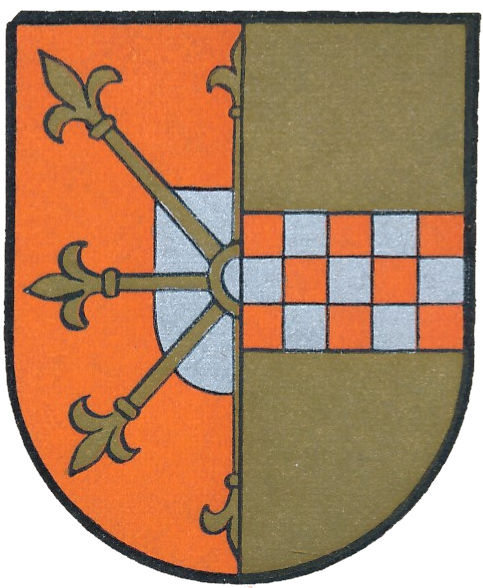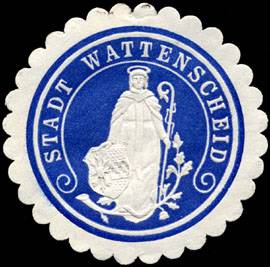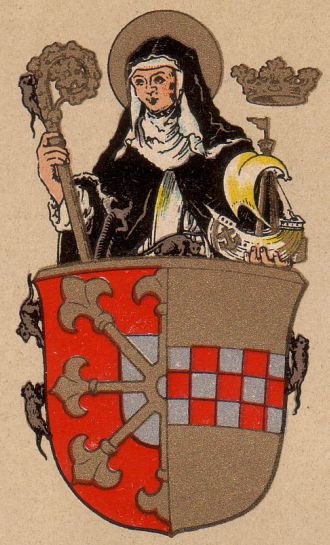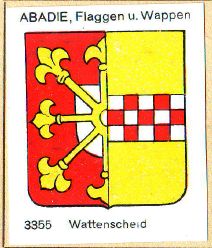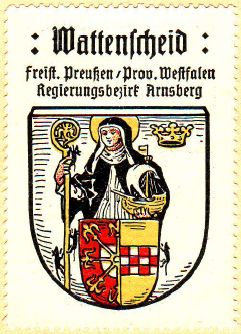Wattenscheid: Difference between revisions
Knorrepoes (talk | contribs) m (Text replacement - "{| class="wikitable"↵|+Official blazon↵|-↵|'''German'''↵| ↵|-↵|'''English''' ↵| {{blazon wanted}}↵|}" to "{| class="wikitable" |+Official blazon |- |'''German''' | blazon wanted |- |'''English''' | blazon wanted |}") |
Knorrepoes (talk | contribs) m (Text replacement - "{{de1}}" to "{{de}}") |
||
| Line 36: | Line 36: | ||
{{ | {{de}} | ||
{{media1}} | {{media1}} | ||
Revision as of 12:48, 25 July 2023
WATTENSCHEID
State : Nordrhein-Westfalen
Urban district (Kreisfreie Stadt) until 1975
Additions : 1926 Eppendorf, Günnigfeld, Höntrop, Munscheid, Sevinghausen, Westenfeld, Westfälisch Leithe
Incorporated into 1975 Bochum
| German | blazon wanted |
| English | blazon wanted |
Origin/meaning
The arms of Wattenscheid were granted on August 21, 1937.
The arms are based on the oldest seal of the city. The oldest seal dates from 1417 and shows the patron saint, St. Gertrudis (Gertraud), holding in her right hand a shield with the present arms. The arms show the escarbuncle of the County of Kleve, and the chequered bar of the County of Mark. The area belonged to Kleve until 1332, when it became part of the Mark. Ever since the seals of the city used this composition. When the arms were officially granted the saint was removed. The local council at the time applied for the use of the supporter, but the State Archives rejected this and finally the city agreed to use only the small shield as arms.
| Seal from around 1900 |
The arms with the supporter (Rühl, 1940) |
| The arms in the Abadie albums |
The arms by Hupp in the Kaffee Hag albums +/- 1925 |
This page is part of the German heraldry portal |
Heraldry of the World |
|
German heraldry:
|
Selected collector's items from Germany:
|
Literature: Stadler, 1964-1971, 8 volumes; Hupp, O: Kaffee Hag albums, 1920s; Rühl, 1940
